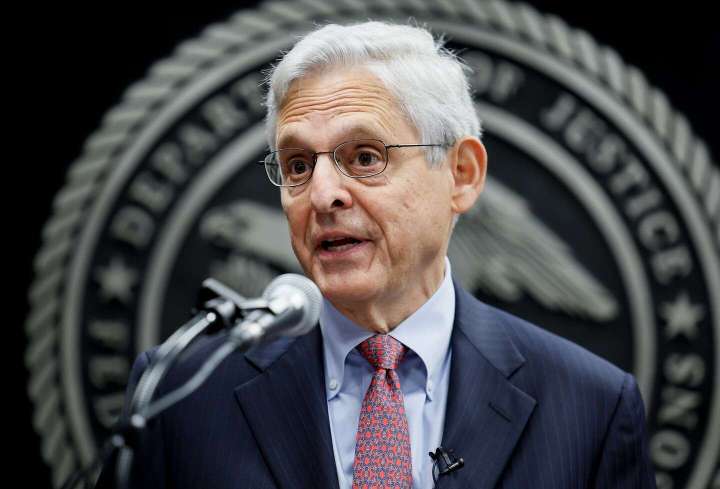After his 2016 Supreme Court nomination, Merrick Garland, according to the New York Times, assured senators that he did not have “a political bone” in his body. That seems to be true, unfortunately.
Garland has a political duty to explain the circus perpetrated at Mar-a-Lago

Regarding this week’s events in Palm Beach, Fla., of course the rule of law is important. So, however, are other things, including social comity and — check the Constitution’s preamble — domestic tranquility. No value ever eclipses all others. Fiat justitia, ruat caelum — let justice be done, though the heavens fall? Let’s not.
As this is written Thursday, there are important unanswered questions about who instigated the search of Mar-a-Lago, and why. One remarkable aspect of this debacle, however, is that vigorous disgust need not wait until we know those answers: Try to imagine a justification for this flamboyant exercise of — what? law enforcement? What was important enough to bring to a rolling boil the already simmering suspicions of tens of millions of Americans about tentacles of the “deep state” engaging in partisan skulduggery?
Prepare for a surfeit of “whataboutisms” from people who were already wary about selective law enforcement and situational journalistic ethics. When the Clintons decamped from the White House in January 2001, they absconded with some furnishings that they were compelled to disgorge, without the FBI’s swarming their home. Hillary Clinton’s later mishandling of classified documents triggered FBI ham-handedness but not a law enforcement spectacle akin to Monday’s.
Follow George F. Will‘s opinions
FollowOne adjective describes most of life’s biggest blunders: “disproportionate.” The perpetrators of this week’s circus surely considered that their target is likely soon to again be a presidential candidate. Equally surely, they did not care. Facts, however, are stubborn things, including this one: In 2020, having watched Donald Trump govern for four years, 74,222,958 Americans — 11,237,852 more than voted for him in 2016 — decided that they wanted to have four more years of him. This can be deplored but should not be ignored.
The great and the good, a.k.a. the Democratic Party in its vanity, gave us President Trump by awarding its 2016 presidential nomination to someone who could manage to lose to the star of the “Access Hollywood” tape. Now, a Democratic administration’s Justice Department has managed to reverse the fading of that entertainer whose act is stale. With his feral cunning, Trump instantly intuited that the search of his home was a gift that will keep on giving by fueling his supporters’ animosities, and their giving.
Trump might have broken laws pertaining to presidential documents. So, cue those who believe that “no person is above the law” is a thought that makes further thinking unnecessary. However, the punctilious enforcement of every law, no matter how complex the social context, is zombie governance by people spouting bromides to avoid making complex judgments.
In one way, this week’s behavior by the FBI and the Justice Department was not unusual, unfortunately. Hardly a day passes without some government entity vindicating historian Robert Conquest’s axiom: “The behavior of any bureaucratic organization can best be understood by assuming that it is controlled by a secret cabal of its enemies.”
Remember the Pop-Tart pistol boy? The 7-year-old chewed his pastry into the shape of a gun and said “Bang! Bang!,” so his school suspended him and urged all parents to discuss the “incident.” Remember the 5-year-old girl who was labeled a “terroristic threat” and ordered to undergo a psychological evaluation because she talked about shooting people with her Hello Kitty gun that shot bubbles? How did we reach this point where so many adults flinch from acting the part by practicing prudence?
This nation is running low on an indispensable ingredient of a successful society: trust, in institutions and one another. This week was another subtraction. Garland has said about the Justice Department, “We will and we must speak through our work.” Actually, his political duty is to explain and justify his work more thoroughly than he did in his minimalist statement Thursday afternoon.
Hamlet did not want his capacity for action to be “sicklied o’er with the pale cast of thought.” If only the Justice Department were more prone to allowing itself to be inhibited by thought.






